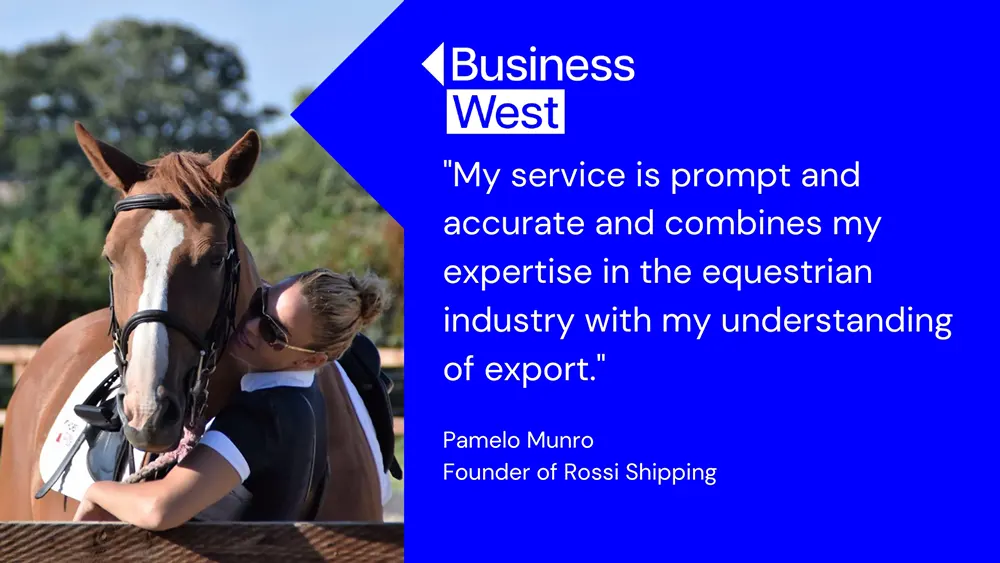
An ATA Carnet, often referred to as a 'passport for goods’, allows for duty and tax-free temporary movement of goods between countries on the ATA Carnet scheme.
ATA Carnets are frequently used by equestrians who need to take their horses out of the UK and into other countries for events and competitions. This is because ATA Carnets make it cheaper and easier to transport horses abroad, as they reduce customs delays, and help transiters to avoid paying customs duties and taxes.
We spoke to Pamela Munro, the founder and sole proprietor of equine Carnet agency, Rossi Shipping. She told us about her work, her relationship with the ATA Carnet team at Business West, as well as about how she deals with the constantly shifting landscape of international trade.
What is your role at Rossi Shipping and what does your work involve?
I am the founder and sole proprietor of Rossi Shipping, an ATA Carnet agency.
I act as an agent for clients who need Carnets to take their horses overseas for races and events. I complete the ATA Carnet applications on behalf of my clients. This involves navigating the eCert online portal, collating all application information, writing and formatting the general list, and submitting it to the Business West ATA Carnet team for processing. My service is prompt and accurate and combines my expertise of the equestrian industry with my understanding of export.
How long have you worked in the export industry for?
I was previously involved in the vehicle transportation business – mostly moving cars from the UK to the EU. I founded Rossi Shipping in late 2020. Since then, I have established a portfolio of regular customers, and this has been an essential part of my business progression. The equine world is a close-knit community, so news of good service travels fast. Reputation and reliability are key to my business.
What types of clients do you work with?
I work with a mixture of organisations and individuals from within the equestrian industry. As the equestrian world is broad, I cater to a wide range of disciplines, including eventing, show jumping, dressage, polo and racing.
Which countries do you export to?
I mostly do business with clients going to the EU, Norway and Switzerland. However, I also act as an agent for customers who are going further afield. There are over 80 countries on the ATA Carnet scheme, so my business caters to all of those countries.
How do you find applying for ATA Carnets on a regular basis?
Following Brexit, it has become more difficult to move horses between the UK and the EU. Now, to avoid spending hours at customs, and spending lots of money on import taxes and duties, it’s advisable to obtain an ATA Carnet.
Many of my clients may not have applied for an ATA Carnet before or are too busy to do it, and that’s where my business comes in. I use my expertise to achieve compliance with the Business West ATA Carnet team requirements.
How do you find working with the Business West ATA Carnet team?
Following Brexit and the legislative changes that occurred, I knew I wanted to process Carnets with Business West thanks to their eCert platform, which is where I apply for the ATA Carnets. Therefore, I approached Business West who were extremely helpful. The team has done great work and been very supportive of me.
What challenges have you faced since starting your business?
Recently, there has been an outbreak of equine herpes virus (EHV). This means that there aren’t so many equestrian clients looking to take their horses abroad. As a result, I have shifted my business so that I now cater to car transporters as well. It’s important to stay flexible in this line of business. International trade is always changing.
